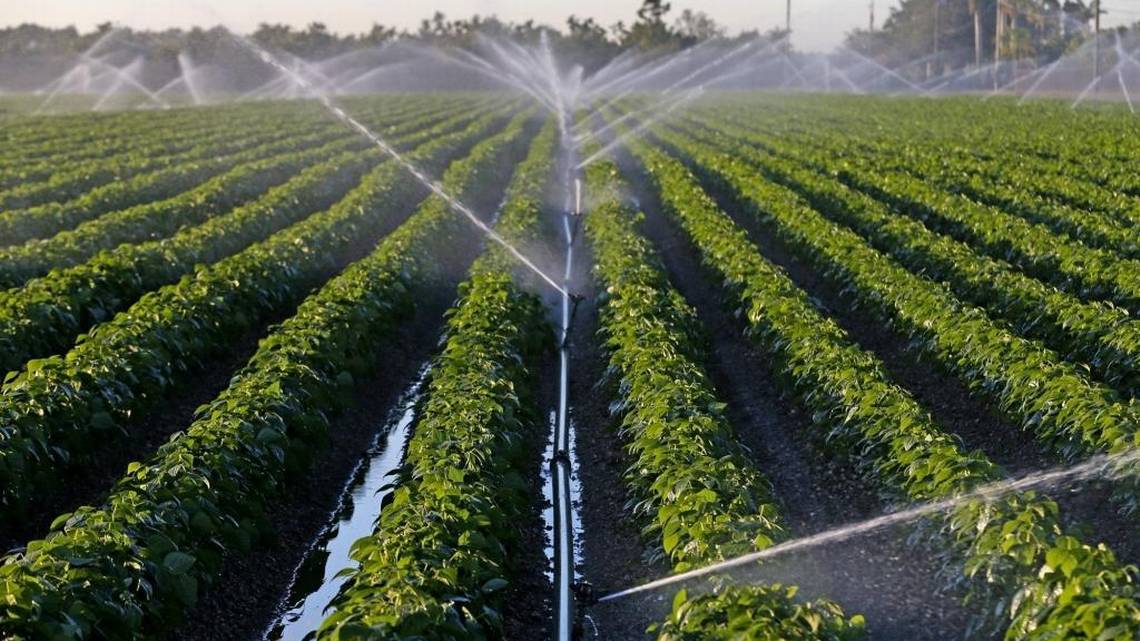The Sunshine State's Agricultural Legacy
Florida, often known for its beautiful beaches and vibrant tourism industry, is also a powerhouse in the realm of agriculture. The state's favorable climate and fertile soil make it a prime location for growing a diverse range of crops. Florida's agricultural roots run deep, with the industry playing a crucial role in the state's economy for decades. The state is renowned for its citrus production, particularly oranges, which have become synonymous with Florida. However, the agricultural landscape is far more diverse, encompassing a wide variety of fruits, vegetables, and even livestock.
Top Crops: More Than Just Oranges
While Florida is famous for its oranges, the state's agricultural output is vast and varied. In addition to citrus fruits, Florida is a leading producer of sugarcane, tomatoes, and strawberries. The state also grows a significant amount of bell peppers, watermelons, and cucumbers. This diversity is a testament to Florida's ability to capitalize on its unique climate and soil conditions. The warm weather and abundant sunshine allow for year-round farming, which is a significant advantage over other states that have a limited growing season.
The Role of Technology in Modern Agriculture
In 2024, technology continues to revolutionize Florida's agricultural sector. Farmers are increasingly adopting precision agriculture techniques, which involve using data and technology to enhance crop yields and optimize resource use. Drones, sensors, and GPS technology are now commonplace, allowing farmers to monitor crop health, soil conditions, and weather patterns in real-time. This technological advancement not only increases efficiency but also helps reduce environmental impact by minimizing the use of water, fertilizers, and pesticides.
The Impact of Climate Change
Florida's agriculture is not without its challenges, with climate change being a significant concern. Rising temperatures, unpredictable weather patterns, and the threat of hurricanes pose risks to the state's agricultural output. Farmers are adapting by implementing sustainable practices and diversifying their crops to increase resilience. Efforts are also underway to develop more climate-resistant crop varieties and to improve water management practices to cope with these environmental pressures.
Organic Farming: A Growing Trend
Organic farming is gaining traction in Florida, reflecting a broader national trend towards sustainable and environmentally-friendly agricultural practices. Consumers are increasingly demanding organic produce, and Florida farmers are responding by converting conventional fields to organic ones. This shift not only meets consumer preferences but also promotes biodiversity and soil health. The state's organic farming sector is expected to grow substantially in the coming years, offering new opportunities for farmers and contributing to the overall sustainability goals.
The Importance of Agrotourism
Agrotourism is becoming an integral part of Florida's agricultural industry, offering tourists a glimpse into the state's farming practices and rural lifestyle. From farm tours and fruit picking to wine tasting and farm-to-table dining experiences, agrotourism provides an educational and enjoyable experience for visitors. This trend helps farmers diversify their income streams and fosters a deeper appreciation for local agriculture among tourists. As a result, agrotourism is poised to become a significant contributor to the state's agricultural economy.
Supporting Local Agriculture
Supporting local agriculture is crucial for the sustainability of Florida's farming industry. Farmers' markets, community-supported agriculture (CSA) programs, and farm-to-table restaurants are all popular ways for consumers to access fresh, locally-grown produce. By purchasing directly from local farmers, consumers can reduce their carbon footprint and support the local economy. Initiatives to promote local agriculture are also gaining momentum, with government programs and non-profit organizations working to connect consumers with local producers.
The Role of Education and Research
Education and research play a vital role in advancing Florida's agricultural industry. Universities and research institutions across the state are conducting cutting-edge research to improve crop yields, develop sustainable farming practices, and combat agricultural pests and diseases. Extension services provide valuable resources and training for farmers, equipping them with the knowledge and tools they need to succeed in a rapidly changing industry. Continued investment in education and research is essential for the future growth and sustainability of Florida's agriculture.
Challenges and Opportunities
While Florida's agriculture faces numerous challenges, including climate change, labor shortages, and market fluctuations, there are also significant opportunities for growth and innovation. The increasing demand for organic and locally-sourced produce, coupled with advancements in agricultural technology, presents new possibilities for farmers. By embracing change and adapting to new market trends, Florida's agricultural sector can continue to thrive and contribute to the state's economy and food security.
The Future of Florida Agriculture
Looking ahead, the future of Florida agriculture appears promising yet complex. As the state navigates the challenges of climate change and evolving consumer preferences, innovation and adaptability will be key. Sustainable practices, technological advancements, and a focus on diversity and resilience will shape the future of farming in the Sunshine State. With continued support from consumers, government, and research institutions, Florida agriculture is well-positioned to remain a vital and dynamic part of the state's economic and cultural landscape.
You Might Also Like
Unlocking The Secrets Of ATB: A Comprehensive Guide For 2024Discover The Magic Of The OC County Fair 2024
Auntie Anne's: The Ultimate Guide To Delicious Pretzels In 2024
Blue Cross Blue Shield Of Tennessee: Navigating Your Health Insurance Options In 2024
Exploring The Royal Bank Of Scotland: A Comprehensive Guide For 2024
Article Recommendations
- Ricegum Net Worth 2023 A Closer Look At The Youtube Stars Wealth And Success
- Kitty Jane A Detailed Look Into Her Life Career And Influence
- Richard Giannotti A Life Of Passion Sports And Business

